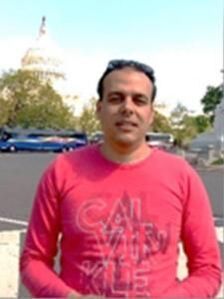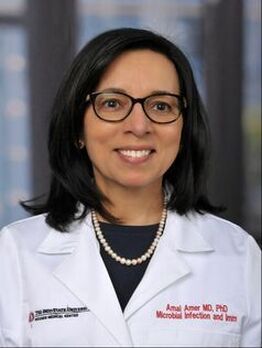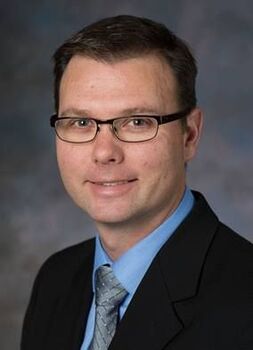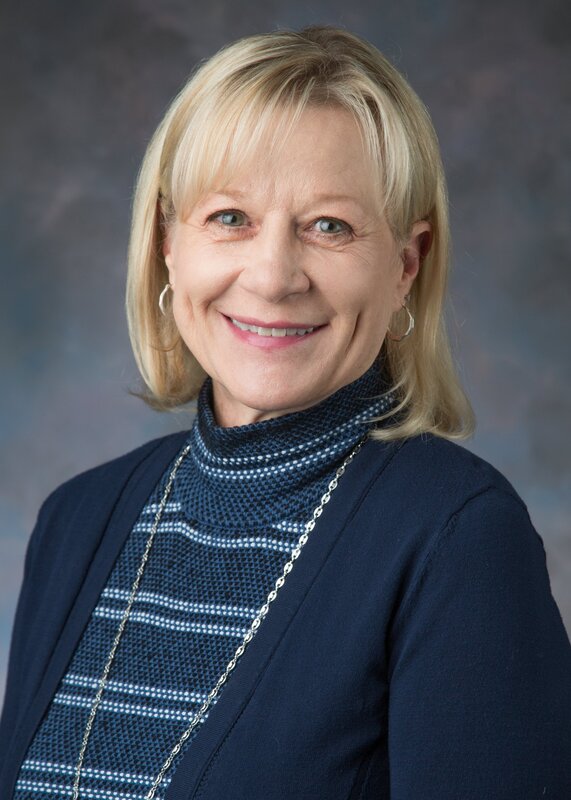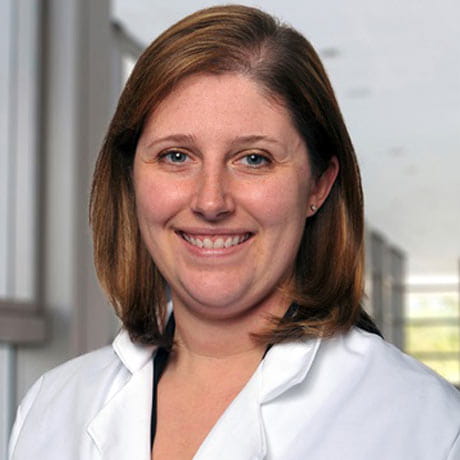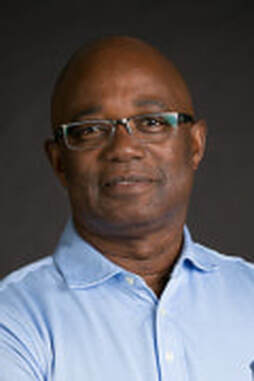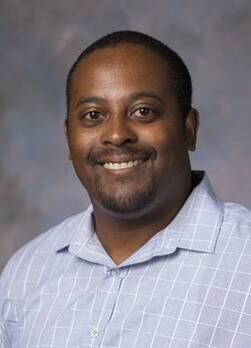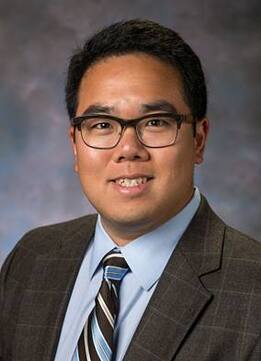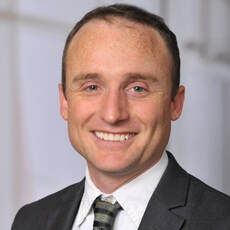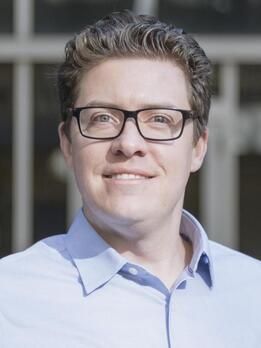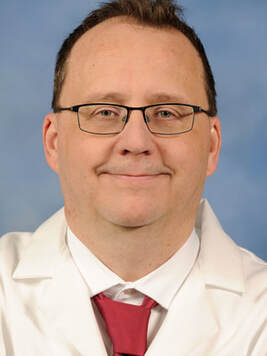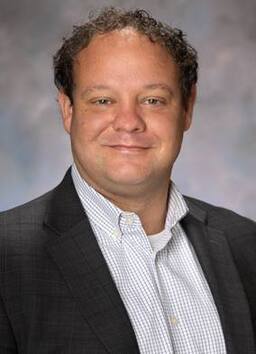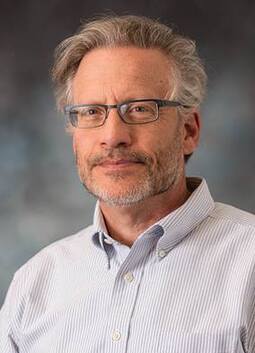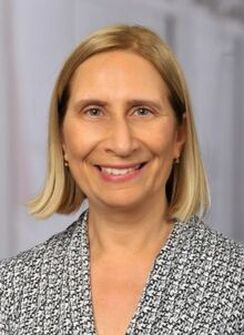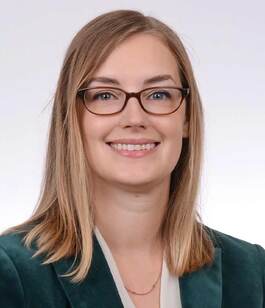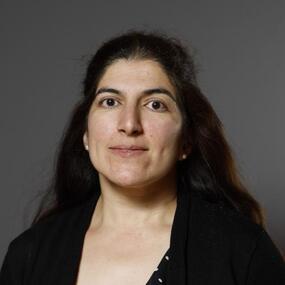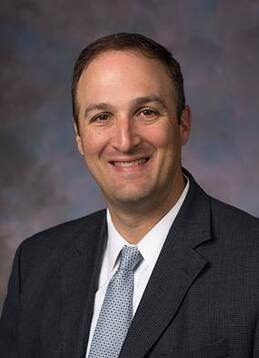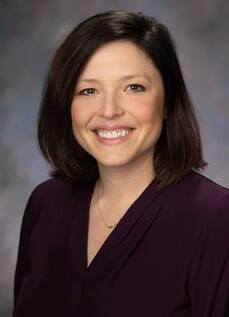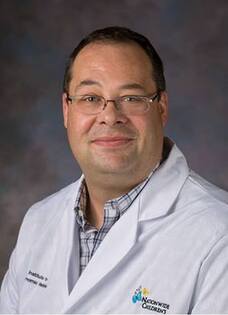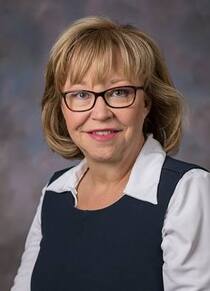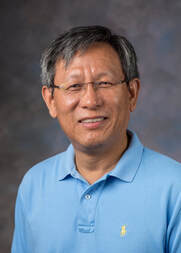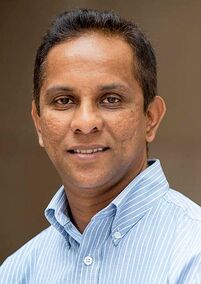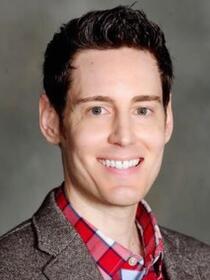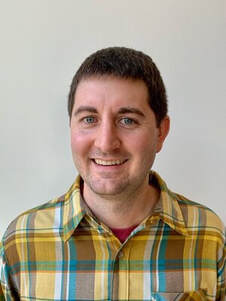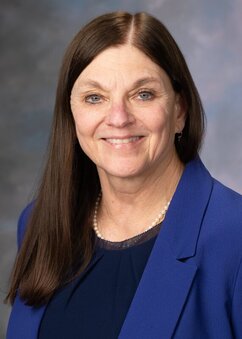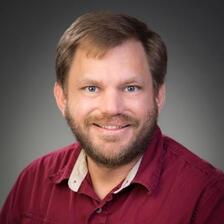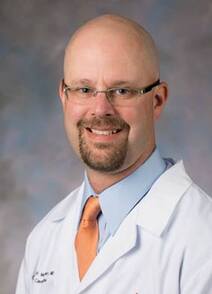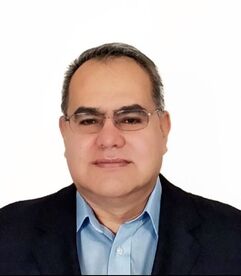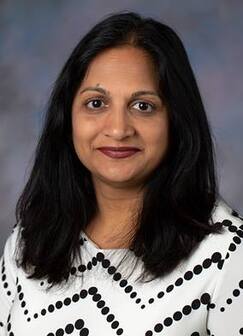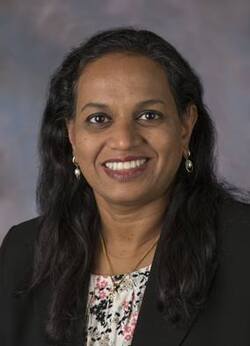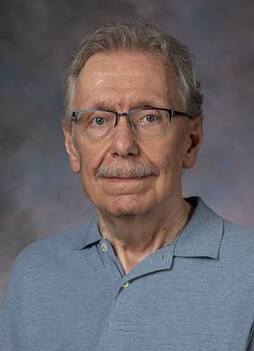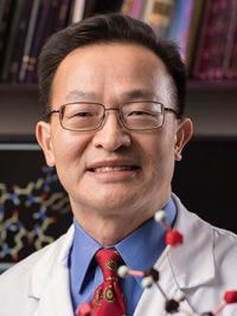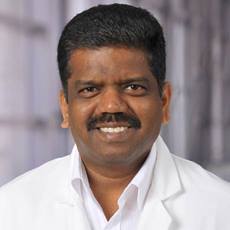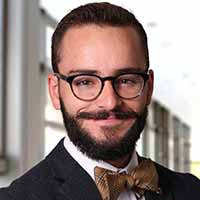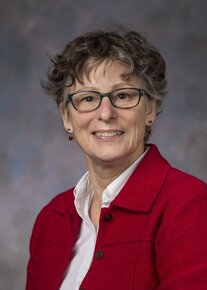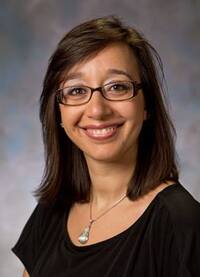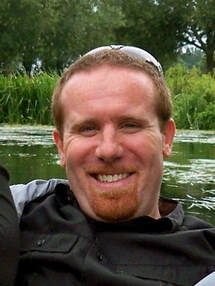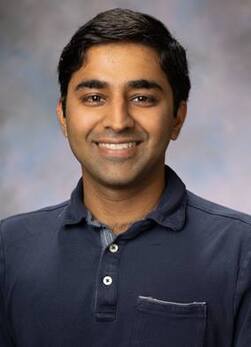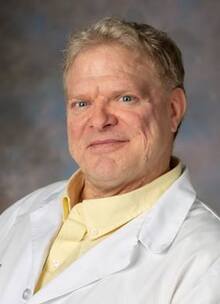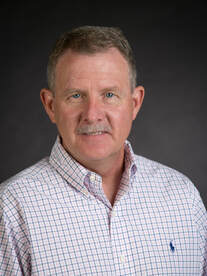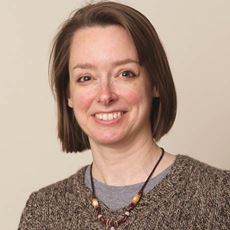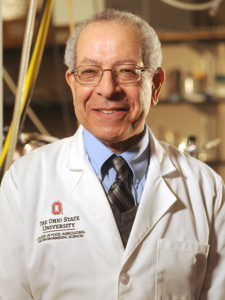Ahmed Abdelhamid, PhD
|
Food Microbiology
Dr. Ahmed Abdelhamid joined the Food Microbiology Research group of Dr. Ahmed Yousef at The Ohio State University (OSU) Since March, 2018. His research focuses on developing a strategy to disrupt desiccation resistance in Salmonella enterica strains associated with outbreaks in low-moisture foods. Part of his collaborative research involves investigation of how foods or food processing approaches change virulence of foodborne pathogens. Nonetheless, part of his research interests is devoted to unraveling probiotics with beneficial traits for human health and food applications. Before joining OSU, he led a two-year funded project to find probiotic strains with the potential of combating antibiotic resistant clinical bacteria. During his PhD, he worked under supervision of Dr Mansel Griffiths, at University of Guelph, Canada. His PhD led to the first description of probiotics to produce omega-3 fatty acids. |
Amal Amer, MD, PhD
|
B. cenocepacia, Innate Immunity
Dr. Amer's laboratory focuses on innate immune response of macrophages to Legionella pneumophila and Burkholderia cenocepacia, microbial pathogenesis, host-pathogen interaction, autophagy, NOD-like receptors, non-apoptotic functions of caspases and the inflammasome complex. |
Michael Bailey, PhD
|
GI Microbiota
Michael Bailey, PhD, is a Principal Investigator in the Center for Microbial Pathogenesis at The Research Institute at Nationwide Children’s Hospital and is an Associate Professor of Pediatrics at Ohio State University. Dr. Bailey has nearly 20 years of experience studying bidirectional interactions between host physiology and the microbes that naturally reside within the gastrointestinal tract (i.e., the gut microbiota). Dr. Bailey’s studies were among the first to show that stressful situations can lead to changes in the composition of the gut microbiota and his current studies are now focused on the impact that changes to gut microbiota composition have on the functioning of the immune system and on nervous system activity. |
Lauren Bakaletz, PhD
|
Mucosal Immunity, H. influenzae
Lauren O. Bakaletz, PhD, is a principal investigator in and the director of the Center for Microbial Pathogenesis at The Research Institute at Nationwide Children’s Hospital and the Tillie E. Coleman Endowed Chair in Pediatric Research. She is a professor in the Departments of Pediatrics and of Otolaryngology at The Ohio State University College of Medicine. The research program of the Bakaletz Lab is focused on determining the molecular mechanisms that underlie polymicrobial infections of the respiratory tract, with a primary emphasis on otitis media or middle ear infections, a highly prevalent pediatric disease worldwide. |
Brian Becknell, MD, PhD
|
Nephrology
M. Brian Becknell, MD, PhD, is a pediatric nephrologist at Nationwide Children's and principal investigator for the Kidney and Urinary Tract Center. He is also an assistant professor of pediatrics for The Ohio State University College of Medicine, where he received his medical degree. Dr. Becknell completed his residency and pediatric nephrology fellowship at Nationwide Children's. His clinical interests include pyelonephritis and congenital obstructive nephropathy. Dr. Becknell's research interests include understanding the mechanisms responsible for deterioration of kidney function in children with congenital obstructive nephropathy. |
Rodney Britt, PhD
|
Airway Biology
Although an effective in suppressing inflammation, corticosteroids are largely ineffective in preventing the pathological and functional changes in airway disease. Consequentially, asthmatic patients insensitive to corticosteroids have difficulty managing symptoms and experience greater disease burden. Dr. Britt’s lab studies how airway inflammation affects corticosteroid insensitivity in airway disease, while developing novel strategies to improve corticosteroid sensitivity and alleviate asthma. |
Tendy Chiang, MD
|
Otolaryngology
Tendy Chiang, MD, is a Pediatric Otolaryngologist in the Department of Otolaryngology and Associate Program Director of the Pediatric Otolaryngology Fellowship Program at Nationwide Children’s Hospital, an Assistant Professor in the Department of Otolaryngology – Head and Neck Surgery at The Ohio State University College of Medicine and a Principal Investigator in the Center for Tissue Engineering and Surgical Research at The Research Institute at Nationwide Children’s. Prior to joining Nationwide Children’s, Dr. Chiang was a pediatric otolaryngologist at Children’s Hospital Colorado. Dr. Chiang completed his medical degree and his residency in otolaryngology at The Ohio State University College of Medicine. After completion of his fellowship in pediatric otolaryngology, he joined the faculty at Children’s Hospital Colorado prior to returning to Columbus. Dr. Chiang’s clinical interests primarily focus around aerodigestive disorders, pediatric head & neck masses, cleft and craniofacial conditions and pediatric sleep disorders. His research interests is directed toward the rational design of tissue-engineered constructs for airway replacement. |
Patrick Collins, PhD
|
Microbial Infection and Immunity
Dr. Collins' research focuses on genomic mechanisms that balance immune development and disease. In this regard, he has two primary research programs: A) the genomic regulators of human innate lymphocytes, which provide surveillance for metastasis and clear hematological malignancies; and B) the mechanisms that stabilize DNA breaks during adaptive lymphocyte development, and thereby prevent end disassociation and oncogenic recombination. |
Daniel Conway, PhD
|
Biomedical Engineering
Daniel Conway is a Professor in the Department of Biomedical Engineering at the Ohio State University and a member of the Ohio State University Comprehensive Cancer Center. His research is focused on developing innovative fluorescent-based imaging approaches to study cell mechanics, with a particular focus on resolving mechanical forces at cell-cell adhesions and the nucleus. Dr. Conway received his BS in Bioengineering at Rice University and his PhD in the joint Biomedical Engineering program between Georgia Institute of Technology and Emory University. During his postdoctoral training at the University of Virginia he developed FRET-force biosensors to directly measure how shear stress affects the mechanical forces across endothelial cell-cell junctions. Prior to coming to OSU, Dr. Conway was a faculty member of the Biomedical Engineering Department at Virginia Commonwealth University. His current research is focused on how mechanical forces at cell-cell adhesions and the nuclear LINC complex regulate epithelial homeostasis. This work is currently funded by NIH NIGMS R35, NSF CAREER, and NSF BRITE awards. |
Estelle Cormet-Boyaka, PhD
|
CF Airway Physiology
Research interests include Epithelial cell homeostasis and their role in inflammatory diseases such as Cystic Fibrosis and COPD, Epithelial cell responses to environmental stimuli such as drugs, pollutants, and viral or bacterial pathogens, Protein-protein interaction and regulation of protein trafficking, Effect of pollutants on immune responses, and Intestinal epithelial cells and gut flora interaction. |
Ian Davis, PhD
|
Airway Inflammation
Since 2001, my primary research focus has been on the pathophysiologic effects of pulmonary viral infections (hantaviruses, respiratory syncytial virus, and influenza A viruses). In particular, I pioneered investigation of the impact of these pathogens on respiratory epithelial ion transport, alveolar fluid clearance, lung mechanics, and nucleotide signaling in vivo and developed novel techniques for measuring acute lung injury severity in mice. Over the past 9 years as an independent investigator, I have extended my studies to focus on development of new therapeutics for viral acute lung injury, the pathogenesis of viral exacerbations of asthma and cystic fibrosis, and the effects of viral infections on lung mechanics and pulmonary responses to b-adrenergic agonists and glucocorticoids. This research program has resulted in funding awards from the Parker B. Francis Families Foundation, NCRR, the American Lung Association, the American Heart Association, the Cystic Fibrosis Foundation, NIAID, and NHLBI. My current studies focus on the mechanistic role of alveolar type II epithelial cells and alveolar macrophages in the pathogenesis of influenza-induced acute lung injury, using both murine and primary human airway epithelial cell models. Specifically, I am interested in the impact of influenza infection on the respiratory epithelial cell and alveolar macrophage transcriptome and metabolome. The goal of these studies is to identify novel host determinants of influenza disease severity that can be targeted therapeutically to prevent, retard, or attenuate influenza-induced acute lung injury. |
Alvin Freeman, MD
|
Pancreatic Care
A. Jay Freeman, MD, MSc, is medical director of Pancreatic Care for the Pancreas and Liver Care Center at Nationwide Children’s Hospital, and professor of Pediatrics at The Ohio State University College of Medicine. Dr. Freeman is a leader in the care of children with pancreatic disorders as well as the GI and liver complications of cystic fibrosis. Related to pediatric pancreatology, he has authored numerous manuscripts and participated in international position papers and guidelines related to the nutritional management of pancreatitis, as well as the care of acute and chronic pancreatitis in children. His work has established the GI patient reported outcome measures used in clinical trials sponsored by the Cystic Fibrosis Foundation (CFF) as well authored guidelines related to the management of pancreatitis, constipation and liver transplantation in cystic fibrosis. In addition to his clinical and research interests, Dr. Freeman serves on the JPGN Reports editorial board and is an advisor on the NPF patient registry. He has received multiple honors including an award for Clinical Innovation in Program Development and was inducted into the GA Chapter of the CFF’s Peachtree Society. |
Luanne Hall-Stoodley, PhD
|
M. abscessus, Innate Immunity
Dr. Hall-Stoodley's research focuses on two strategies that pathogenic bacteria use to persist in the host and cause chronic infections in the human respiratory tract: 1) biofilm development (adherent and/or aggregated bacteria associated with mucosal epithelia) and/or, 2) intracellular residence in host cells. |
Emily Hemann, PhD
|
Microbial Infection and Immunity
The development of effective and persisting adaptive immune response is required for clearance of and protection from viral infection. Rapid detection of virus by infected cells and innate immune cells leads to production interferon (IFN), contributing to an antiviral state within tissues. However, a fine balance is required for effective immune activation and viral clearance while minimizing pathology. Research in the Hemann laboratory focuses on understanding the cellular components and signaling pathways that function at the innate-adaptive immune interface to program protective immunity against viral infection. We have recently revealed that type III IFN, expressed primarily at barrier surfaces, plays a critical role in shaping functional adaptive immunity against influenza A virus (IAV) infection. Projects aimed to better understand the specific mechanisms by which type III IFN regulates adaptive immunity following IAV vaccination and infection are ongoing. Additional research projects in the laboratory are focused on understanding how virus sensing and IFN signaling in specific non-immune and immune cell subsets regulates respiratory virus infection and the induction of protective immunity. We utilize novel genetic knockout infection models and combine transcriptional and cellular analysis to understand how early innate immune signals program innate and adaptive immune cells in the context of respiratory virus vaccination and infection. The ultimate goal of our research is to inform the development of better adjuvants and therapeutics against viral infection. |
Razi Kebriaei, PhD
|
Pathogens, Pharmacokinetic, Pharmacodynamic
Dr. Kebriaei’s research is focused on treatment of multi-drug resistant bacterial infections. Some examples of the diseases associated with these infections include bacteremia, endocarditis, bone and joint infections and implant associated infections. Her current work is concentrated on both planktonic and biofilm states of bacteria and novel approaches for combating multi-drug resistant infections. She utilizes various classes of antimicrobials with distinct mechanisms of action to discover optimal treatment options for a wide range of infectious diseases. In addition, she designs and operates pharmacokinetic/pharmacodynamic models to simulate humanized doses in vitro. The majority of knowledge achieved from this research is translatable to bedside and leads to better patient outcomes. |
Stephen Kirkby, MD
|
CF Care and Transplant
Stephen Kirkby, MD, is the Medical Director of the Lung and Heart-Lung Transplant Programs at Nationwide Children's Hospital (NCH) and is an Associate Professor of Pediatrics and Internal Medicine at the Ohio State University College of Medicine. Dr. Kirkby graduated from Penn State University College of Medicine. He completed his residency training in internal medicine and pediatrics at the Ohio State University Wexner Medical Center (OSUMC) and Nationwide Children's Hospital. He then completed fellowship training in adult pulmonary/critical care medicine and pediatric pulmonary medicine. He is board-certified in pediatric pulmonary medicine, adult pulmonary medicine, critical care medicine and internal medicine. Dr. Kirkby serves as the Program Director of the Pediatric Pulmonary Fellowship at NCH, as well as Director of the Lung Transplant Fellowship at OSUMC. Dr. Kirkby's areas of research focus on clinical outcomes in lung transplantation and cystic fibrosis (CF). His main clinical interests include lung transplantation, CF and other congenital lung diseases, pulmonary hypertension in advanced lung disease, and treatment of unusual pulmonary infections. |
Katelyn Krivchenia, MD
|
CF Infant Care
Katelyn Krivchenia, MD, is a member of the Section of Pediatric Pulmonary Medicine at Nationwide Children’s Hospital and an assistant professor of pediatrics at The Ohio State University College of Medicine. She has been with The Ohio State University College of Medicine and Nationwide Children’s Hospital for her medical school, Internal Medicine-Pediatrics residency and pediatric pulmonology fellowship training. She is the Associate Director of the Infant Cystic Fibrosis and Newborn Screening Program. Her clinical interests include management of cystic fibrosis across the ages, bronchoscopy, and the management of severe chronic lung disease in children. Her research interests include the socioeconomic and emotional challenges surrounding care of infants with cystic fibrosis. |
Christian Lauber, PhD
|
Microbiome
Christian Lauber, PhD, is a broadly trained microbial ecologist interested in how microbiome composition relates to microbiome function and the delivery of ecosystem services in natural and host associated environments. Chris obtained his PhD in Biology from the University of New Mexico and was a post doc in the labs of Dr. Noah Fierer and Dr. Rob Knight at the University of Colorado before moving to Switzerland to work for Nestlé Institute of Health Sciences and École Polytechnique Fédéral de Lausanne. His current research aims to leverage next generation sequencing of the microbiome to support best outcomes for children. |
Amy Leber, PhD
|
Microbiology and Immunoserology
As the Director of Clinical Microbiology and Immunoserology, Dr. Amy Leber provides technical oversight in all areas of clinical microbiology and immunochemistry; including bacteriology, mycology, mycobacteriology, parasitology, virology, serology, and molecular infectious disease testing. She also oversees autoimmune, allergy testing, and select immunology assays. She provides consultation for physicians/clients in all areas of Infectious Disease laboratory testing. Dr. Leber has multiple teaching responsibilities for various medical personnel including direction of Infectious Disease Fellowship rotation in the laboratory. She is responsible for the management of quality and technical processes of the laboratories, and to direct research and development for new methodologies. |
Yusen Liu, PhD
|
Innate Immunity and Signaling
Yusen Liu, PhD, is a Professor of Pediatrics at The Ohio State University College of Medicine. Dr. Liu’s NIH-funded research program focuses on the role of MAP kinase phosphatases in host defense against microbial infection. His research has established MAP kinase phosphatase (MKP)-1 as one of the most important negative regulators of inflammation and a potential target for a variety of inflammatory diseases. |
Namal Liyanage, PhD
|
Mucosal Immnology
Dr. Liyanage’s major research interests are to explore novel strategies to prevent and control chronic viral infections such as HIV through better understanding of the innate and adaptive immune responses. His recent studies have shown the critical role of mucosal innate lymphoid cells and natural killer cells in the prevention of SIV/HIV infections. |
Landon Locke, PhD
|
Imaging
The overarching goal of my research program and professional research career is to build a translational and cross-disciplined program involving bioimaging and infectious disease studies. I am leading two projects that address major challenges in microbial-driven diseases, including: (1) directly targeting/imaging the invading pathogen using self-targeted engineered probes and (2) understanding the determinants of the cellular response to microbial triggers in the form of immune cell structures known as granulomas in health and disease for improved diagnostics and therapies. |
Matthew Long, PhD
|
Accute Lung Injury, Leukocyte Biology
The main objectives of the laboratory are to understand the cellular and molecular mechanisms regulating pulmonary inflammation and its resolution, with the goal of developing anti-inflammatory or dual anti-microbial and anti-inflammatory therapeutics. We currently focus on two primary lung diseases: 1) Cystic Fibrosis (CF) and, 2) Acute Respiratory Distress Syndrome (ARDS), and are specifically interested in understanding how MAPK signaling pathways regulate leukocyte responses to inflammation and infection. Our laboratory utilizes both in vitro and in vivo models in our experimental design to investigate the regulators of inflammation. |
Karen McCoy, MD
|
CF Care
Karen S. McCoy, MD, is chief of the Division of Pulmonary Medicine at Nationwide Children's Hospital, Nationwide Foundation Endowed Chair in Pulmonary Medicine and professor of Pediatrics at The Ohio State University College of Medicine. Her clinical interests focus on managing patients of all ages with cystic fibrosis (CF) and pediatric asthma. Dr. McCoy's research interests revolve around clinical outcomes and trials in cystic fibrosis and asthma. She is the principal investigator for the CF Therapeutic Development Center. She is the director of the CF Center, and medical director for Infant and Non-infant Pulmonary Function, and Respiratory Care. |
Mark Mitton-Fry, PhD
|
Antimicrobial Development
Dr. Mitton-Fry’s research team is dedicated to inventing cures for multidrug-resistant bacterial infections. The lab uses the tools of synthetic medicinal chemistry to design and prepare innovative new molecules, and we collaborate broadly to evaluate their biological, pharmaceutical, and toxicological properties. Dr. Mitton-Fry also enjoys teaching students at all levels about antibacterial therapies. |
Chris Montgomery, MD
|
S. aureus, Immunology
Christopher P. Montgomery, MD, is a Critical Care physician at Nationwide Children’s and a Principal Investigator in the Center for Microbial Pathogenesis at the Research Institute. He is an Associate Professor of Pediatrics at The Ohio State University College of Medicine. Dr. Montgomery received his Bachelor of Arts from Kalamazoo College and graduated from Wayne State University School of Medicine with high distinction. He completed his residency in Pediatrics and fellowship in Pediatric Critical Care Medicine at the University of Chicago Hospitals. Dr. Montgomery’s research focuses on the pathogenesis of Staphylococcus aureus infections in children, with an emphasis on how the bacterium interacts with the host immune response. |
Santiago Partida-Sanchez, PhD
|
Ion Channels, CF Pathogenesis
My laboratory is interested in the study of immune cell recruitment induced by infection and/or inflammation. Our research projects are focused on molecular analyses of chemokine receptor-mediated G-protein-linked signaling and calcium influx in neutrophils and DCs. We are conducting experiments to study regulation of calcium influx mediated by CD38-catalyzed metabolites and the ADPR-activated calcium channel TRPM2 in inflammatory cells. We would like to assess whether CD38 inhibiting drugs, CD38-derived antagonists, and/or TRPM2 channel inhibitors, have potential therapeutic use to block undesired chronic inflammatory responses, or harmful T cell responses leading to autoimmunity. This knowledge could allow us to design new strategies for clinical intervention in several immunological disorders, as well as inflammatory and infectious diseases. |
Alpa Patel, MD
|
CF Care
Alpa R. Patel, MD, is a physician in the Section of Primary Care Pediatrics at Nationwide Children's Hospital and a clinical assistant professor of Pulmonary Medicine at The Ohio State University College of Medicine. She is a co-director of the Adult Cystic Fibrosis Center. Her clinical interest focuses on management of adult cystic fibrosis patients. Her research interest lies in preventive medicine, especially cystic fibrosis-related osteoporosis, and the prevention and treatment of depression and diabetes related to cystic fibrosis. She is also involved in the Cystic Fibrosis Therapeutic Development Network and has served as a primary reviewer on proposed protocols. She is a co-director of and actively involved with the Pulmonary Rehabilitation Program at Nationwide Children's Hospital. She is also active in teaching medical professionals at multiple levels, with other major interests in the internal medicine/pediatrics clinic and teaching internal medicine/pediatric residents. |
Grace Paul, MD
|
CF Care, Global CF
Grace Paul, MD, is an associate professor of pediatrics in the Division of Pulmonary and Sleep Medicine at Nationwide Children's Hospital. Dr. Paul completed her medical education at Christian Medical College in Vellore, India, followed by pediatric residency at Case Western/MetroHealth Medical Center in Cleveland. She completed her pulmonary fellowship at the University of Pittsburgh and sleep medicine fellowship at The Ohio State University. Her clinical interests are asthma, cystic fibrosis (CF) and the pulmonary and sleep manifestations of neuromuscular disorders. She is skilled in interpreting pulmonary function tests and polysomnography, and in performing bronchoscopies to evaluate upper and lower airway pathologies. Dr. Paul was a member of the International Health Committee of the American Thoracic Society, and has received substantial funding for global health initiatives, specifically focusing on children with CF in India. She has given multiple lectures on CF care in developing nations and has helped establish a CF center in India. Her non-clinical interests include simulation training on tracheostomy care and emergencies to Nationwide Children's residents and pulmonary fellows and providing lectures on various pulmonary and sleep disorders. |
Mark Peeples, PhD
|
Airway Epithelial Biology
The Peeples’ lab is working to understand respiratory syncytial virus (RSV), the most prominent cause of hospitalization for children. Starting with “progenitor” cells that they isolate from airways, they develop mucus-producing and cilia-waving cells. The RSV attachment glycoprotein (G) attaches RSV to ciliated cells and they have identified a virus receptor on these cells. After attaching to the cell, the viral membrane fuses with the target cell membrane, spilling the viral genome into the cell to initiate infection. They are studying both the attachment by the G protein and the fusion, driven by the RSV fusion (F) protein. F dramatically refolds to reach out to the cell membrane, grab it, and continuing to refold, pulling the two membranes together and causing them to fuse. They are working to identify the “trigger” point on the RSV F protein and what interaction initiates this refolding. In collaboration with six other labs, they are developing novel live attenuated vaccine candidates for RSV, the most common cause of hospitalization for young children in the US. They recently published their first candidate RSV vaccine, finding that a low dose of vaccine efficiently induced antibodies and was highly protective in animals. |
Dehua Pei, PhD
|
Peptide Delivery Strategies
Dehua Pei obtained his B.S. Degree in Chemistry from Wuhan University, China in 1986 and his Ph.D. Degree in organic chemistry from University of California, Berkeley in 1991, working under the direction of Peter G. Schultz. After a postdoctoral stint with Christopher T. Walsh at Harvard Medical School, he joined the faculty at OSU in 1995 as an Assistant Professor of Chemistry. He was promoted to Associate Professor in 2001 and to Professor in 2004. |
Murugesan Rajaram, PhD, FAHA
|
Innate Immunity and Cardiac Dysfunction
The central goal of our research program is to understand the molecular mechanism of host response to microbial infections of humans, particularly bacterial and viral diseases, using animal and in vitro models. Our research has focused on two major areas: 1. Understand the molecular mechanism and pathogenesis of cardiac dysfunction cause by pneumonia causing bacterial and viral infectious agents. 2. Define the mechanism of Mycobacterium tuberculosis drug resistance. |
Mitchell Ramsey, MD
|
Gastroenterology
As a gastroenterology physician at The Ohio State University Wexner Medical Center, Dr. Ramsey specializes in treating pancreatic disorders. He regularly cares for patients with acute and chronic pancreatitis, pancreatic cysts and cystic fibrosis. He also performs endoscopy and colonoscopy procedures for cancer screening and other diagnostic purposes. His research is focused on enhancing our understanding of pancreatic disorders and advancing treatments. |
Susan Reynolds, PhD
|
Progenitor Cell Biology
Susan D. Reynolds, PhD's research focuses on tissue stem cells that maintain the conducting airway epithelium. Previous work identified a basal cell subtype that functioned as a tissue stem cell in mice. Current research translates these findings to human airways and seeks to use the tissue stem cell as therapy for lung disease, including Cystic Fibrosis. |
Ala Shaikhkhalil, MD
|
CF GI Dysfunction
Ala Shaikhkhalil, MD, is an attending pediatric gastroenterologist and physician nutrition specialist at Nationwide Children's. She is also an associate professor of clinical pediatrics at the Ohio State University College of Medicine. In addition to her training in pediatric gastroenterology at Nationwide Children's, Dr. Shaikhkhalil completed a fellowship in pediatric nutrition at the Children's Hospital of Philadelphia. Her specialty interest is in nutrition and its role in Children's health and growth, in addition to the role nutrition plays in various disease processes including inflammatory bowel disease, cystic fibrosis, and celiac disease . Dr. Shaikhkhalil participates in multidisciplinary clinics for children and adolescents with nutrition-related bone health concerns and cystic fibrosis. Her research focuses on nutrition education at all levels of medical training including culinary medicine, gastrointestinal and nutrition manifestation of cystic fibrosis and inflammatory bowel disease, and the role of zinc in growth and body composition of extremely preterm infants. |
Matthew Sullivan, PhD
|
Phage Ecology and Therapeutics
Dr. Matthew B. Sullivan's research focus is on the co-evolution of microbe and virus (phage) in environmental populations, as well as the impact of marine phages on microbe-mediated global biogeochemistry. Genomics and model-systems-based experimentation revealed that cyanobacterial phages often contain host photosynthesis genes, which are expressed during infection and act as a diversity generator for their numerically-dominant, globally-distributed photosynthetic hosts. Using a genomic and metagenomic toolkit, we query 'wild' viral populations to identify important hypotheses that can be evaluated using model-system approaches with appropriate phage isolates. The Sullivan lab is also developing single-cell assays to investigate questions that are critical for modeling and predicting the impacts of phage-host interactions in the wild. Specifically, these include gaining an understanding of the in situ host range of phage isolates, the metabolic capacity of to-date uncultured phage-host systems, the impacts of host growth status on phage production, and the fraction of microbial cells that are infected in wild populations. |
Sriram Vaidyanathan, PhD
|
Gene Therapy
Sriram Vaidyanathan, PhD, is a principal investigator in the Center for Gene Therapy at the Abigail Wexner Research Institute at Nationwide Children’s Hospital and an assistant professor of Pediatrics at The Ohio State University College of Medicine. Dr. Vaidyanathan earned his bachelor’s degree in Biomedical Engineering from Purdue University and his PhD in Biomedical Engineering from the University of Michigan, Ann Arbor. He completed his postdoctoral training with Dr. Matthew Porteus at Stanford University, CA. His primary research interest has been the development of gene and cell therapies. His most recent work has been focused on the development of CRISPR/Cas9 based genome editing to treat cystic fibrosis (CF). His lab will continue to further develop genome editing approaches to treat CF and other airway diseases. |
Fred Woodley, PhD
|
CF GI Dysfunction
Dr. Woodley is a senior scientist/principal investigator in the Division of Gastroenterology (GI) at Nationwide Children’s Hospital (NCH), an assistant professor of pediatrics at The Ohio State University, and an adjunct professor of microbiology at Columbus State Community College. He holds a PhD in Molecular and Cellular Biology and a MS in Microbiology/Biology. His clinical responsibilities at NCH include performing and interpreting hydrogen breath tests for small intestinal bacterial overgrowth and carbohydrate malabsorption, and analyzing and interpreting multichannel intraluminal impedance tracings to identify patients who have gastroesophageal reflux disease (GERD). Dr. Woodley has co-authored two book chapters, published numerous research articles and countless abstracts, and presented his research findings at both national and international meetings. He has been a member of the GI Division at NCH since 2004. |
Daniel Wozniak, PhD
|
P. aeruginosa
Dr. Wozniak’s research activities are focused on the pathogenesis of several bacteria that cause chronic, devastating infections in humans. In chronic airway infections and wounds. Pseudomonas aeruginosa, Staphylococcus aureus, and Acinetobacter are the most common nosocomial pathogens isolated and are consistently associated with high mortality rates. Resources spent treating such infections in the U.S. are estimated at ~ $25 billion annually. These infections are extremely difficult to control since the bacteria exhibit a biofilm-mode of growth rendering them resistant to antimicrobials and phagocytic cells. |
Kristine Yoder, PhD
|
Cancer Biology and Genetics
Integration of the retroviral genome into a host chromosome is an essential part of the HIV life cycle. However, understanding of integration is still incomplete. Our studies of host DNA repair factors have identified both positive and negative regulators of retroviral infection. Proteins of the nucleotide excision repair pathway, XPB and XPD, are able to defend the host genome from retroviral integration by degrading the viral cDNA by an evolutionarily ancient mechanism. In contrast, base excision repair (BER) proteins enhance HIV integration. We are continuing to explore the role of BER proteins during integration. Finally, we are evaluating the role of chromatin during integration. Integrase favors DNA wrapped around nucleosomes far more than naked DNA. These studies provide fundamental knowledge of integration that may be useful for enhancing anti-retroviral therapy and also for targeting integration of retroviral gene therapy vectors. |
Ahmed Yousef, PhD
|
Food Microbiology
Dr. Ahmed Yousef earned his Ph.D. in Food Science from University of Wisconsin-Madison. He worked as a postdoctoral researcher at the University of Wisconsin-Madison before joining Ohio State as an Assistant Professor in 1991. Since joining OSU, Dr. Yousef has been searching for natural alternatives to currently used synthetic food preservatives. His team discovered potent antimicrobial agents produced by beneficial bacteria; both the agents and bacteria are suitable for applications in food preservation. Since the late 1990s, Dr. Yousef and his research team have worked to develop methods to pasteurize shell eggs and to decontaminate fresh produce while maintaining products’ fresh qualities. His breakthrough uses a combination of mild heat and pressurized ozone to pasteurize shell eggs. This process can eliminate Salmonella and other pathogens inside raw shell eggs. His ozone research also led to developing methods to decontaminate spinach, apples, and other fresh produce. As a result of this research, Dr. Yousef established the largest ozone research laboratory in the U.S. right here at Ohio State. Because of his food-safety expertise, Dr. Yousef frequently appears in television, radio, and newspaper interviews to explain issues related to foodborne disease outbreaks and products recalls. |

